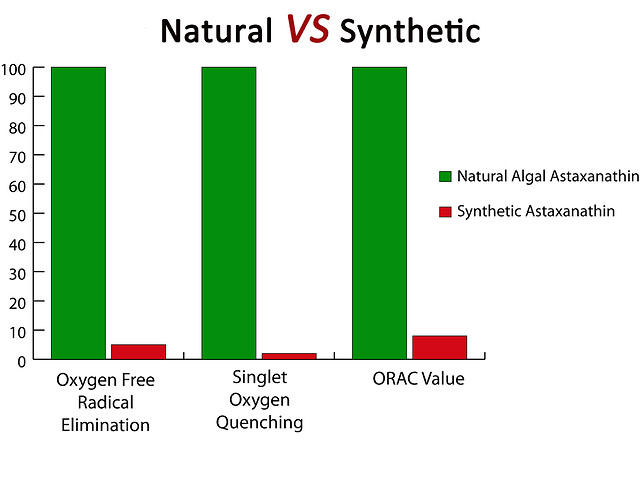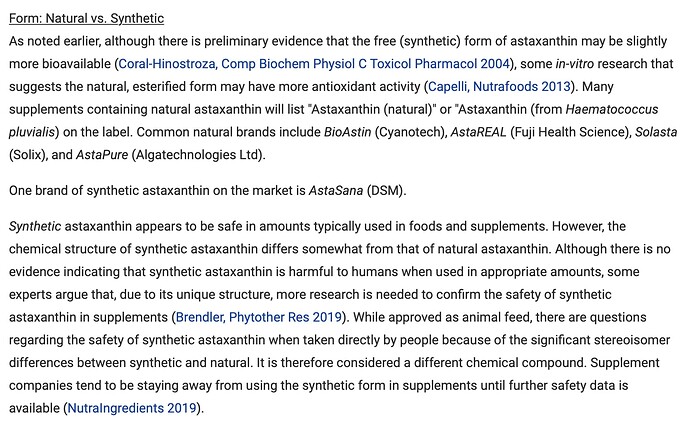As I reported earlier and was discussed in the earlier Astaxanthin thread here, the National Institutes on Aging, ITP program is having good success with median lifespan extension with Astaxanthin at 4,000ppm, with preliminary results (not final) of a median lifespan increase of about 12%. The 4,000ppm dosing in the mouse studies, translates to something like 3.5 grams per day in human dosing.
In this NIA ITP study I think they may be using the synthetic version of Astaxanthin called AstaSana manufactured by DSM nutritional products, a Dutch company.
So, this study and the good results in terms of healthspan / lifespan extension brings up a number of issues.
Right now - the Astaxanthin supplements market is virtually entirely “natural” astaxanthin produced by Algae. This production method is very expensive and the resulting supplements are very expensive even at a low dose of 12mg/day. At the level of dosing used in the NIA ITP Study it would cost about $4,500 per month to get the 3.5 grams per day of Astaxanthin that resulted in the 12% lifespan extension. Obviously this pricing level is not acceptable for most people.
There is of course, the question of how likely it is that the AstaSana synthetic astaxanthin mouse study translates with similar results to humans?
There is the added issue and question as to whether the NIA ITP study using synthetic astaxanthin translates to natural astaxanthin (in humans)?
There is research that suggests that the synthetic astaxanthin is more bioavailable than the natural astaxanthin, so it may be that the natural astaxanthin does not provide the same longevity & health benefits that the synthetic astaxanthin does:
Study on Bioavailability of synthetic Asta:
Cost / Benefit and Risk/Reward:
So, there are a number of considerations when thinking about taking Astaxanthin for its lifespan extending properties.
-
The Cost/Safety/Efficacy of Natural Astaxanthin. Natural Astaxanthin is very expensive, and has a long history of use in humans and has an excellent safety profile. But, Does Natural Astaxanthin provide the same level of health / longevity benefits that the Synthetic Astaxanthin has shown in the mouse longevity studies by the NIA ITP? We just don’t know.
-
The Cost/Safety/Efficacy of Natural Astaxanthin. The Synthetic Astaxanthin (at equivalent doses) is roughly 75% to 80% cheaper than the Natural Astaxanthin, and is showing excellent results in the NIA ITP studies, but this type of Astaxanthin has not been sold much as a human supplement yet. (but it is easily purchased from suppliers).
Following is the informational and safety data from DSM on their AstaSana synthetic Astaxanthin product, which is manufactured in Spain. Please let me know your thoughts…
PDS_5016378.pdf (85.0 KB)
EFSA 2019 - Safety of astaxanthin for its use as a novel food.pdf (1.0 MB)
AstaSana - GRAS notice.pdf (1.3 MB)


